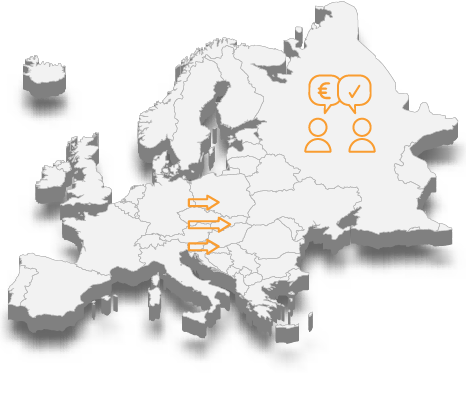A New Global Paradigm
Written by Jeremy Smith
Across the globe, every industry has felt the impact of the Covid-19 pandemic. Over the last two years, companies have been forced to adapt, but are still hesitantly navigating these times as the scale of disruption seen is deeper than ever before. The difference between this downturn and the Great Financial Crisis (GFC), is that the shock is not limited to economics but has persisted through every degree of the human experience, thus redefining matters on every level. As a result of this worldwide changing landscape, cross-border financing has also been forced to shift in a way that provides immediate gratification towards opportunities. These opportunities support organizations amongst this international uncertainty, and that level of opportunity has been most visible, surprisingly, in the M&A markets.
The volume of M&A transactions in 2020 was the highest in the last decade, with 2021 surpassing those levels by almost 24% to be the best year of M&A this century. In an effort to combat downside risks, Sponsors have been focusing on businesses in sectors that have proven resilient to covid or are actively buoyed by the new world that the pandemic created. These sectors include technology, tech-enabled services, education, and healthcare, whose recurring revenue streams are attractive in uncertain markets. These industries are not the traditional mainstay of ABL, but that is not to say that ABL lending has been stagnant. ABLs have reported record years in terms of deal numbers, but this has been driven, in part, by the provision of government support programs.
In response to the pandemic, organizations have needed to change and evolve to survive. One strategy employed to combat the economic instability was for companies to analyze their businesses and assess group structures, leading to the identification of poor-performing divisions, non-core assets, or legacy subsidiaries, that were not in line with the direction of the group as a whole. These divisions, however, still have value, and can be attractive to the right acquirer, be that a corporate or Private Equity sponsor. Often, these subsidiaries and division are located in foreign jurisdictions where management does not have a complete understanding of local idiosyncrasies or demands, but due to their geographic location, are easy to carve out with a relatively quick turnaround horizon. However, with international companies comes a minefield of regulations, customs, and financing options that need to be understood to avoid falling at the first hurdle.
One of the most prevalent obstacles in cross border M&A transactions is obtaining debt across multiple jurisdictions. This requires a full knowledge of each jurisdiction as regulations can differ vastly from place to place. For example, this is especially true when it comes to the need for banking licenses in countries like France and South Africa.
Another challenge surrounding cross-border M&A transactions are the difficulties in providing acquisition financing due to restrictions in finance application. In Europe, financial assistance (FA) rules still exist in a number of jurisdictions, governing how a target company’s assets can be used to fund the purchase of the business. While “whitewashing” procedures are commonplace, it is essential to engage knowledgeable, local legal counsel who can steer both acquirers and lenders through the pitfalls and workarounds. This is especially true as the legal parameters in some countries not only place burden of liability on the buyer to abide by the financial assistance rules, but also on any party who has facilitated the sale, thereby tying the lender, advisor, and counsel, into the liability.
At FGI, there has been a noticeable increase in the number of M&A deals over the past few years. Having the extensive experience and ability to fund restructuring deals across multiple jurisdictions and asset classes has proven essential in trying to win business during these unstable times. An example of a recent transaction was a $40MM ABL facility provided for the purchase of a global provider of technology products, semi-conductors and solutions, by a pan-European Sponsor. The Sponsor needed the facility in part to acquire the carveout business, as well as to support the company’s future growth goals. The acquisition of the European division, which includes the UK, Netherlands France, Sweden and Germany, was part of the Company’s strategic portfolio repositioning to align investments with higher growth, and margin businesses.
As we look towards the rest of 2022 and beyond, M&A activity remains strong although the environment is increasingly challenging. Corporate carveouts are a growing part of that M&A activity, including cross-border elements which have been a component to many deals that FGI, and the industry, have seen. To successfully execute these deals, lenders need to be knowledgeable and experienced in these local jurisdictions to avoid common pitfalls and complete these transactions successfully.
This article is for informational purposes only and does not constitute professional advice. Investments always have the potential for loss. FGI, including its affiliates, makes no warranties about the accuracy or the completeness of this information and disclaims any liability (including direct, indirect or consequential loss or damage) related to the materials. Please consult your financial professional for advice relating to your circumstances and refer to our full terms and conditions.
